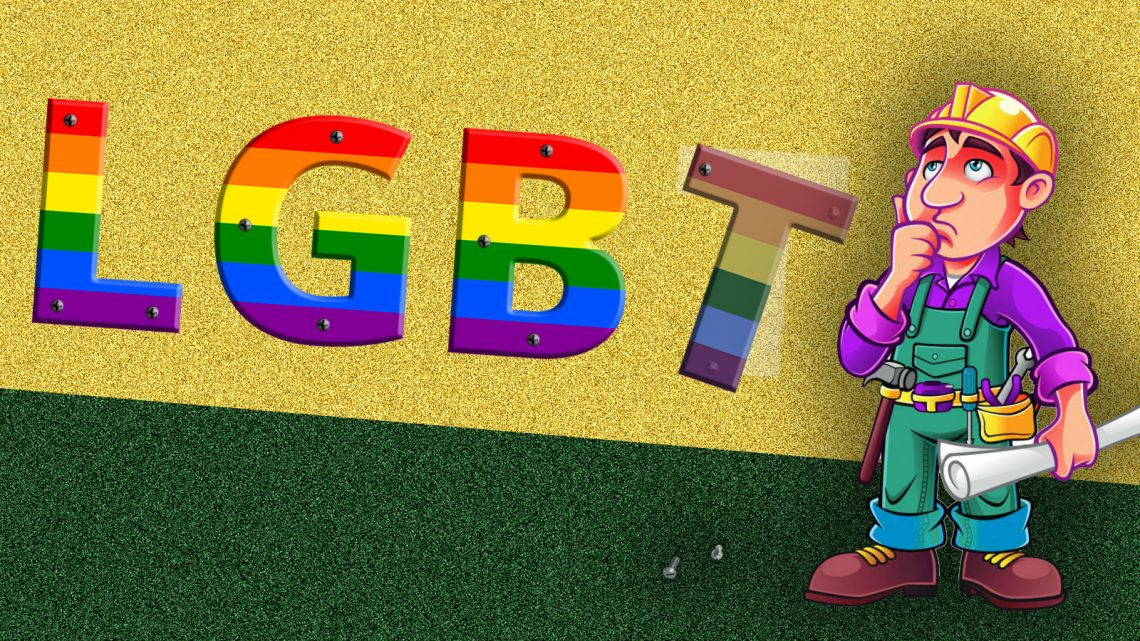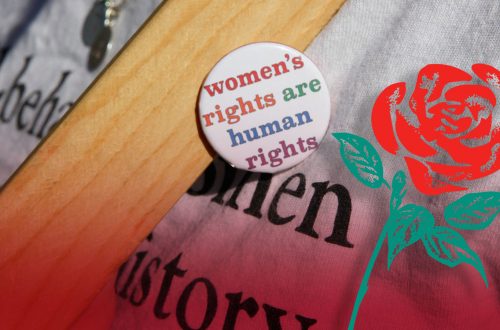The resignation of Ruth Hunt as the chief executive of Stonewall, the leading UK LGBT campaigning group, underlies a growing tension between lesbian, gay and bisexual people on the one hand, and an increasingly strident and bullying transgender activism on the other. Rumours are that Hunt had to go because she’d shifted Stonewall to align with the latter and the organisation’s donors and supporters felt – not unreasonably – that this was at the expense of the former. It was particularly irksome to old-school lesbian feminists.
There is a tension between the interests of lesbian, gay and bisexual people – whose issues relate to sexual orientation – and those of transgender people who, as the name implies, believe they are of a different gender to what their bodies and chromosomes might suggest. Trans-activists have found a new vigour and have moved eagerly into the space vacated by LGB campaigners after legal equality was achieved and discrimination outlawed on the basis of sexual orientation. Throughout the Western world there are few, if any, legal impediments to enjoying a full life as a gay man or lesbian, and in general transgender people have been beneficiaries of the same advancements. But unlike many gay campaigners who have scaled back their activism, the transgender lobby is turbo-charging its efforts with a raft in increasingly deranged demands.
I will try to unpack some of this madness, but it is no easy feat.
A foreshadowing of this insanity came 6 years ago when the Marriage Equality Act was passing through parliament. Transgender campaigners tried their best to derail it and had the support of Peter Tatchell who explained to Pink News:
Trans people – especially those already in marriages or civil partnerships – get a raw deal. Among other flaws, married transgender people will need their spouse’s written permission before they can get a gender recognition certificate. This amounts to a ‘spousal veto’ over a trans person’s life.
This limitation is by no means unreasonable. Why should a heterosexual woman who married a heterosexual man suddenly find herself in a lesbian marriage she hadn’t consented to if her husband decided unilarerally to “become a woman”? Why should a lesbian suddenly find herself married to a man against her will – and her nature – if at some point her spouse decided she was really a man and wanted a penis?
The willingness – indeed, eagerness – to trample over another person’s rights should have been the warning sign that things weren’t going to go well. After all, if a trans person feels that another person should have no say in the gender of the person they find themselves married to, it rides a horse and cart through the very notion of sexual orientation: a straight woman should not find herself married to a spouse with breasts and no penis. A lesbian should not have to find herself married to someone with a penis. (More of this later, because it gets even crazier.)
I don’t know why Tatchell went along with this, but I can only imagine it was a combination of virtue-signalling and an instinct to attack anything the Tories proposed – even if it was the most significant step forward in British history for lesbian and gay people (apart from the decriminalisation of homosexuality itself in 1967). But this stance did not protect Tatchell later when the blind fury of Transmania turned on him after the veteran campaigner had the temerity to support free speech in an arena which increasingly demands compelled speech. Similarly, Canadian psychologist and academic Jordan Peterson has faced violent and disruptive protests due to his refusal to be compelled to speak in a particular way.
The totality of what the Trans-activists now demand in a post LGBT-liberated western world amounts to special pleading and bullying. Bullying may seem like a strong word, but how else do you characterise the no-platforming of feminists speakers who are dismissed aggressively with the insult “TERF” (‘trans-exclusionary radical feminists’) if they dare to wonder aloud what transgender demands imply for female-only space.
The association of a vagina with womanhood is increasingly policed, both in the figurative and literal senses. Social media giant Twitter will ban people who do not discuss trans issues in an approved way, for example expressing the ideas that “women have vaginas”, while in the UK the police will investigate this truism as ‘hate speech’. This is bullying, plain and simple.
The ‘right’ to undergo a sex change without the consent of a spouse (covered above) makes some sort of sense when framed in the context of another unhinged position. Some trans activists are now claiming that they are biological women and since they were born with a penis, that is a biologically female penis. Lesbians – who do not like penises – are being told they are ‘transphobic’ for refusing to have sex with ‘women with penises‘. The once cutting-edge play The Vagina Monologues has been banned from some venues because it is “trans-exclusionary”.
Women are concerned by the encroachment of biological males into female spaces, especially where the women in these spaces are vulnerable. For example female prisons. A policy change allowed prisoners who were ‘men who identified as women’ to be jailed with women. It wasn’t long before there was a scandal involving the rape of female prisoners by a trans-woman with a penis. The insanity behind the decision is underscored by the fact that the prisoner in question was jailed as a rapist before deciding to ‘transition’.
This is yet another example of how increasingly politically-correct ideology is overwriting not only science but common sense itself.
In sports, long-time campaigner for lesbian and gay rights, sports-superstar Martina Navratilova declared that it would not be fair for a female to have to compete in sports with someone born biologically male. Despite having come out publicly in the 1980s and having championed LGBT rights, Navratilova was dismissed as a ‘transphobe’ for stating the obvious: biological men (however they choose to ‘identify’) are naturally stronger, faster, bigger, than biological females Having trans-women compete in women’s sports will eventually erase women from sports. It is no surprise that sports that have opened up to trans competitors have trans-women (born men) as champions. Rachel MacKinnon is a champion cyclist whose obviously-male physique towers over the women she beat. Only this week, two trans-women took first and second place in a women’s athletics event. And this is not the first time.
Perhaps the most symbolic factor necessitating a divorce of LGB from T is the aggressive attempt to erase LGB history and make it bogus-T. For example, lesbians in history are being appropriated as ‘trans’, especially when they were butch or wore masculine clothing (but never identified as anything other than female). Gay men who were drag queens – but who knew that they were being playful with gender stereotypes rather than believing they were in fact women – too are being appropriated, most notably the famous drag queens who led the Stonewall riots.
There is also a concern that oversensitivity to trans issues may lead to children who are lesbian, gay or bisexual being mis-labelled as ‘trans’ and encouraged on a journey they will later regret. Deeply homophobic countries like Iran have even been praised as ‘progressive’ on trans issues because they force gay men in particular into sex-changes. In this messed up world where day is night and up is down, is it any wonder that blinkered single-issue campaigners think this is progressive?
Trans-demands conflict mostly with women’s rights, and by extension, lesbian rights. It seems the abyss between them is uncrossable, so it is only reasonable to now ask: Is it time to uncouple the T from the LGB?
In closing, it seems that a great deal of what trans people complain about is illusory. There are no legal impediments to them living as full and equal lives as their straight, gay, lesbian and bisexual friends and neighbours and social stigma is reducing dramatically with each generation. The point is most graphically illustrated by the case of Nikki Joly, a trans-man who police now suspect of committing a hate-crime hoax. Joly burned down his own house – killing his pets – allegedly because he’d become bored and unfulfilled after local government said “yes” to all the demands of a campaign he led. Some people are addicted to both activism and victimhood – a potent cocktail of righteous fury and self-pity – and are adrift when it is no longer necessary. Others just love the attention, and like other hoaxers will do almost anything to get it.
So here’s the thing: Transpeople – like any other minority – deserve to be treated with dignity and respect. If a person not born female identifies later as a woman, there is no reason to be rude or churlish and refuse to use their preferred gender pronoun. No transperson should suffer undue discrimination in the workplace, just as no one ought to suffer the same due to their race, gender, creed, sexual orientation or disability, or any other non-relevant status. And of course, everyone – minorities especially – should be protected from violence. But this is where it should end.
No other group can, or should, ask for more from society.


